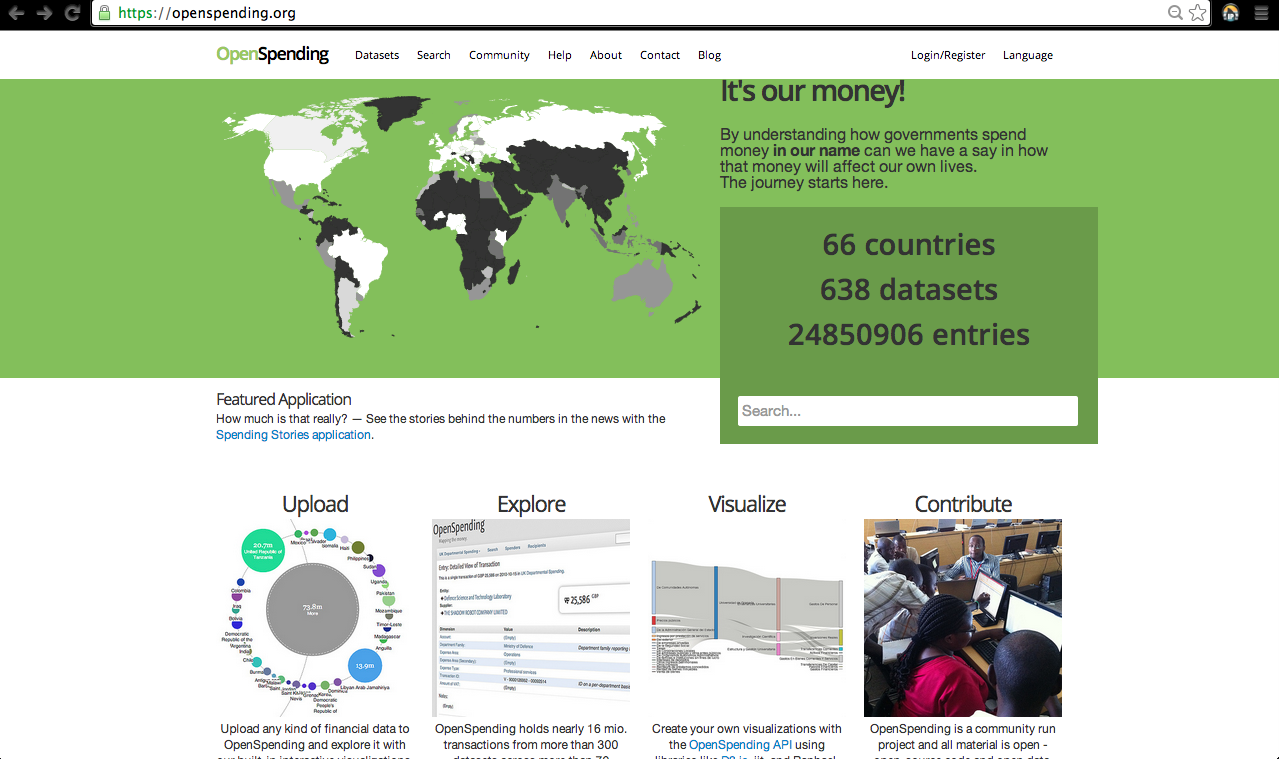Tracking the Money with OpenSpending.org

Last Tuesday, NDI was lucky enough to hope Anders Pederson to talk about Open Knowledge Foundation’s new project, OpenSpending.org. Understanding how governments spend money is important; It affects the lives of citizens. Governments often claim they spend money “on behalf” of their citizens without any real monitoring of exactly where the money goes once it leaves taxpayer pockets. Perhaps your government announced an increase in spending on education, a position you supported, as part of their election campaign. However, without open and easy access to government spending it is almost impossible to know if that promise was followed through on.
OpenSpending’s self identified purpose is to, “map the money worldwide.” The website hosts information from 66 countries in the form of 638 datasets to form a resource for individuals and groups who wish to discuss and investigate public financial information, such as: journalists, academics, campaigners, and more. Data can be used to gain knowledge about government spending, and that knowledge can better help citizens and organizations to take action and be involved in how governments spend money.
As Anders pointed out in his discussion with us here at NDI, one of the problems with big data is that it often is presented in a less than user-friendly format. Most data that matters is not available and accessible to the public. Even when data is available, it may not be in a usable form. Analyzing data presented in a .pdf document (or even scarier, in paper format) will take remarkably longer than that presented in .xls format. OKF and OpenSpending work to translate such underwhelming data disclosures into a usable format.
Great, so you now no where to go looking for data on government spending. But what can you do with it? Well, you can plug some of the numbers you are seeing into OKF’s SpendingStories application to get some pretty great comparisons for how other governments have spent similar amounts of money. You can analyze data and see if your government follows through on its government budget’s and campaign promises with regards to public spending, or you could use the information to create telling graphics for your studies or articles, just to name a few ideas.
OpenSpending is for more than consumers of spending data, it is also a place where independent users can publish budgets, procurements, spending data, and even public employee salaries. OpenSpending is open community; anyone interested in financial data is able to contribute. All material is open - open-source code and open data.
